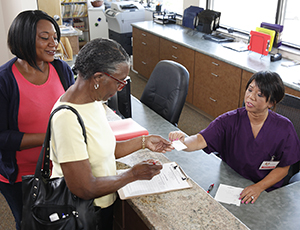After percutaneous coronary intervention (PCI) expect that you’ll need regular follow-up appointments with your healthcare provider. The first appointments just after the procedure will focus on how well you are healing after your angioplasty. Later appointments will look at your overall heart health. They will help you address risk factors for heart disease.
Before you go home, your healthcare team will schedule your first follow-up visit. Be sure your appointment is on a day that you can make it. You may want to arrange for someone to help you get to and from your first follow-up appointment. Follow all of the instructions your provider has given you after your procedure. Call if you have questions.
You’ll see your healthcare provider who did the PCI for your first follow-up visit. This will be about a week after the procedure. This provider will check the site where the catheter was inserted. You may also have tests to check your heart and overall health. Going forward, you may need to see your heart care provider or primary care provider regularly. These visits allow your healthcare provider to track your health. They will help manage your heart disease.



